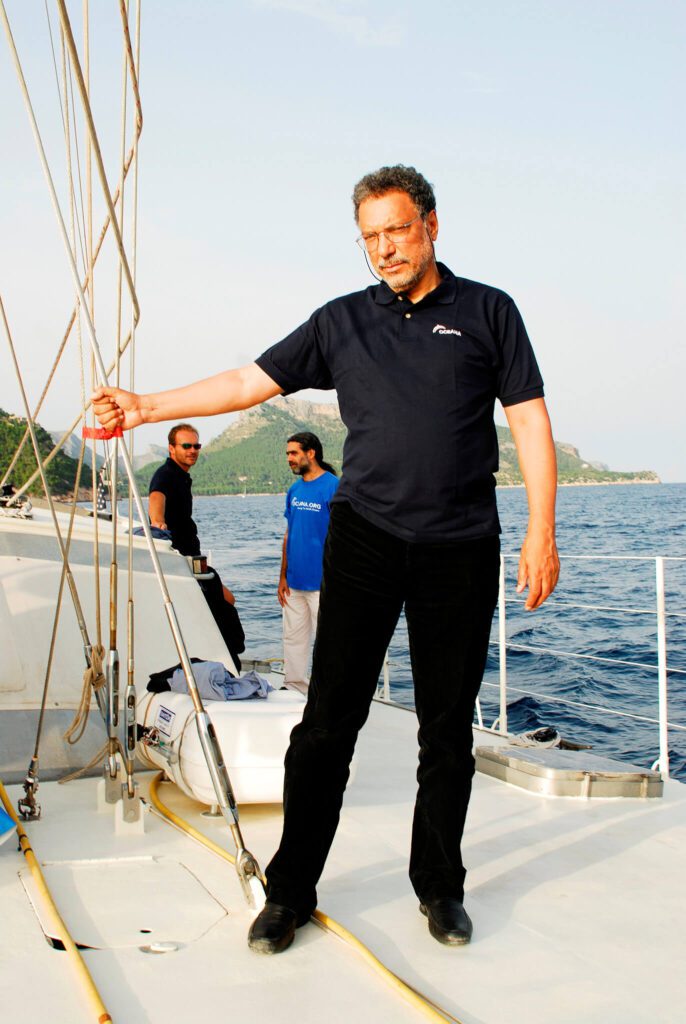August 28, 2024
Ask Dr. Pauly: Are Science and Advocacy Compatible?
BY: Daniel Pauly
Editor’s Note: World-renowned fisheries scientist and Oceana Board Member Dr. Daniel Pauly has contributed his scientific expertise to Oceana Magazine for over a decade. Across more than 30 issues, he has answered questions on wide-ranging subjects from illegal fishing to marine heatwaves. We have been honored to share Dr. Pauly’s insights and perspective with readers of Oceana Magazine. Please enjoy this final installment of Ask Dr. Pauly, which was originally published in Oceana Magazine’s Spring 2024 issue.
Dear Reader: This is my last “Ask Dr. Pauly” column for Oceana Magazine, which I began writing in 2012. In May 2024, I will be 78 years old, and it is time to reduce my workload. I cannot, however, leave without dealing with the old canard (which means “duck” in French; don’t ask) that scientists should not be involved in advocacy.
I have dealt with this question about science and advocacy for a long time, given that I am a published scientist and a member of Oceana’s Board of Directors.

In many ways, the canard creates a problem where there shouldn’t be any problems to begin with. This was eloquently stated in 1993 by Mary O’Brien, who taught public-interest science and environmental advocacy at the University of Montana.
“[T]here are infinite questions that you could ask about the universe, but as only one scientist, you must necessarily choose to ask only certain questions,” she wrote. “Asking certain questions means not asking other questions, and this decision has implications for society, for the environment, and for the future. The decision to ask any question, therefore, is necessarily a value-laden, social, political decision as well as a scientific decision.”1
This point becomes even more salient when considering how the range of views expressed by scientists and scholars that are deemed politically “acceptable” during a given period, also called the “Overton Window” (look it up!) can vary enormously. For example, studying or teaching history in the United States was considered harmless for a long time. But studying or teaching the history of chattel slavery has now become politically risky for academic historians and history teachers in multiple U.S. states.
Another way to deal with the canard is to consider that scientists and other scholars are citizens of the countries in which they live and work. As citizens, as well as moral beings, they can and should contribute to the well-being of their country — and by extension — to humanity as a whole, to the best of their abilities.
Indeed, there is nothing in the ethos of science that says scientists should be silent when they encounter abuse in their disciplines, be it an abuse of data, a corporation lying about its real environmental impact, or an industry performing inhumane tests.
Medical doctors are expected to help their patients recover from bacterial illnesses, not to be neutral as to the fate of bacteria and people. Why, then, should scientists studying biodiversity remain neutral regarding the decline of North Atlantic right whales, for example, whose last remaining population is threatened by ships that refuse to slow down to avoid lethal collisions? Does the science of cetology (i.e., the scientific study of whales and their relatives) suffer from cetologists preferring for the species they study not to go extinct, and thus becoming advocates for their protection?
This point is not a reductio ad absurdum, but an increasingly common problem for scientists working on environmental issues. We are in an age where more and more populations and species are going extinct. It’s time to kill the canard.
Finally, in science, there are guardrails to prevent personal opinions from shaping scientific discourse too strongly. The main one is anonymous peer review, formally developed in the 1970s, to help reduce scientific claims to the level supported by the available data. The peer-review system is now slowly failing because fewer scientists are interested in spending hours reviewing papers anonymously for no tangible personal benefit, especially when academic publishers are profiting enormously from this labor.2 Peer review, however, remains important and must be revitalized, as it prevents many unsupported claims from being published, or even put to paper in the first place.
In addition to peer review, scientists and scholars are required to disclose their source(s) of funding, unlike other fields such as politics, where many funding sources accessible to politicians are not publicly known, even if they heavily influence a politician’s stances.
In conclusion, scientists can, and in many cases, arguably should, be advocates. In fact, the idea that activism is not compatible with science is usually pushed by people with a political agenda that benefits from the non-involvement of scientist-citizens and is designed to hide the agenda they unavoidably have.
I conclude this column by thanking successive editors of Oceana Magazine and their colleagues for improving over 10 years’ worth of my clunky prose, and the readers of this magazine, who I hope, did appreciate the personal views of a scientist AND advocate.
- O’Brien, M.H. 1993. Being a Scientist Means Taking Sides. BioScience, Vol. 43(10): 706-708. https://doi.org/10.2307/1312342 ↩︎
- One article about this — and there are many — is Buranyi (2017). Is the staggeringly profitable business of scientific publishing bad for science? https://www.theguardian.com/science/2017/jun/27/profitable-business-scientific-publishing-bad-for-science . ↩︎



